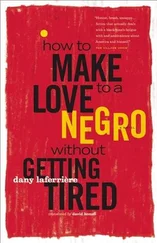Sid-Ahmed’s wife shook her head. Santiago found the family’s stubbornness exasperating. He tried to fill the radiator of the vehicle with water, but one of the boys dissuaded him.
‘If you pour water into the car, we’ll die of thirst. Better for the car to die.’
‘But if the car dies, we’ll die too.’
After arguing with each and everyone of them, he was allowed to pour in half a litre. Eventually he decided that for that morning they could not go any further. It was too hot. The bodywork was on fire and the tyres were going soft, even though it was only December. The cars abandoned by the side of the road were a compelling argument for stopping. They drove a kilometre off the road and settled at the bottom of a hillock. While Santiago checked the tyres, the family improvised a tent. Everyone appeared to know what to do. Santiago sweated more than anyone else. When he realised how quickly the water left his body, he decided that he would not fill up the radiator without making sure that there was a well nearby.
He soon understood that the goat was a lifeline. Its milk and some dates provided a meal for the whole group. Afterwards everyone lay in the shade, trying not to move or waste energy. Not even the sound of the wind disturbed their peaceful rest. Santiago fell sound asleep.
A light breeze started blowing which relieved them of the heat but also carried a disconcerting noise. The Saharawis alerted Santiago to it. He listened intently.
‘Trucks,’ said San Román.
He climbed to the top of the hillock and lay flat on the ground, trying to find out what it was.
A column of military vehicles was coming down from Gaada. As soon as he saw them he guessed the reason.
‘They’re headed for El Aaiún. Coming from the north. They can only be Moroccan.’
‘What are we going to do now?’ asked Andía, who had come to lie down beside him.
‘We can’t move. If they see us they’ll make us turn around.
Either that or they’ll take us prisoner.’
They waited without moving until well into the night. Then they broke camp and resumed their journey. From then on they could only travel across the desert. The road was too dangerous.
It took them six days to cover the two hundred kilometres to the sacred city of Smara. Miraculously, the vehicle only once got a puncture. When the city came into view, Santiago breathed out in relief. But his worries were not over. He had to press on further south-east, to the border with Mauritania. And he feared coming across the invading Mauritanian vehicles. Every now and again, a vehicle would overtake them, or they would see whole families fleeing on foot. Some had left El Aaiún more than a month previously. At every encounter they would stop, pitch camp, prepare tea and catch up on the rumours that travelled from one corner of the Sahara to the other. Meanwhile, Santiago would pace up and down, nervous, hesitant, worried. He felt very guilty of the fact he had not honoured his word. He’d promised Lazaar to take his family to Tifariti within three days, but at the pace they were going there wouldn’t be anyone left at the military camp by the time they got there.
But the worst was still to come. In the middle of the night, battling against a sandstorm, Santiago lost sight of the tracks. Suddenly he found himself in front of an impassable hill. He went back the way he’d come from and again got lost. Now he couldn’t even find his own tracks, and the terrain became steeper. When he realised he should stop it was too late. His heart sunk on hearing a peculiar noise coming from the engine. He heard it over the wind. The radiator was running out of water. He got out, but the sand blinded him. At first he couldn’t lift the bonnet, and when he finally managed it the sand covered everything. He fell on his knees and started repeating a prayer in Arabic that he’d picked up having heard it said so often.
The storm didn’t blow over until mid-morning. At least it wasn’t too hot. The Land Rover was by then almost buried in the sand. The women once more set about pitching camp, while the young men gathered dry branches to make a fire for tea. They’d been living on dates and goat’s milk for over two weeks. Lazaar’s eldest brother stayed with the legionnaire to help him with the vehicle.
‘We can’t fill up the radiator,’ said Santiago.
‘Why not?’
‘It’s got a crack somewhere. Even if we poured in all the water we’ve got left, it would leak out again.’
‘No car, no water. We can’t go on my friend.’
Santiago slumped onto the floor, defeated. Andía, who never left his side, wiped his brow. She was sure the legionnaire would get them out of there. Judging by her smile, she didn’t doubt it for a moment.
The first thing Santiago did, after getting his strength back, was try to find his bearings. The boys started walking, and he followed them with some difficulty. Although it took time, they eventually came across the tracks left by other vehicles. They had strayed four or five kilometres off course. San Román tried to remain calm. It would still take a few days to get to Tifariti. He thought they should all rest for a while and then set off, leaving the baggage behind. By now he knew the goat was their only means of survival. On foot they might reach Tifariti in a week. As he was wondering how to broach the subject with the family, he had a brainwave. On getting back to the camp he took one of the empty fuel cans and urinated into it. Lazaar’s mother grew very serious, but the children burst out laughing, as if the legionnaire had gone crazy. He then asked everyone to urinate into the can. It seemed like a stupid idea, but soon everyone accepted that the Spaniard must know what he was doing. In an hour, Santiago collected the urine of fourteen people and, with a funnel, filled up the radiator. Fortunately it hadn’t emptied completely, and so Santiago was able to calculate where the crack was. The children, as in a game, looked under the chassis until they found the exact point. It was easy. A puddle formed on the floor right under the leak. Santiago took out a bar of soap and crawled under the vehicle. He’d never thought he would use this crazy trick he’d learned among the Nomad Troops, but he rubbed the soap on the radiator until it formed a paste.
For nearly two hours he rubbed the soap over and over, the caustic soda chafing his fingers. Then he squashed it onto the metal with the palm of his hand. He came out from under the car and lay down, exhausted. The Saharawis watched him uncomprehending, as if he was putting on a bizarre show.
‘Now we’ll wait a few hours for it to dry. And after that, everyone will need to pee again.’
It took them two days to fill up the radiator: as they didn’t drink much water, they didn’t urinate much. Eventually Santiago turned the ignition and the engine rumbled into life. He waited to make sure the leak had stopped. Andía kept laughing and shouting things to him in Hassaniya. In under an hour they took down the tent and loaded the vehicle once again.
Five days later the landscape began to change. The number of vehicles and people on foot indicated that Tifariti wasn’t far. They arrived on the 24th of December, thirteen days later. It had been the hardest journey that Santiago had ever undertaken, and they were almost a month behind schedule. Several kilometres before Tifariti, the Polisario Front tried to impose some order in the reigning chaos. Their trucks picked up those who arrived on foot, they removed broken-down vehicles from the road, handed water to those who didn’t have any left, and indicated where they should go from there. Santiago San Román let Andía’s mother deal with the soldiers. He was convinced that his cropped hair, and the fact that he was a legionnaire, would not go down well with the people from the Polisario.
Читать дальше




![Ally Carter - [Gallagher Girls 01] I'd Tell You I Love You But Then I'd Have to Kill You](/books/262179/ally-carter-gallagher-girls-01-i-d-tell-you-i-lo-thumb.webp)







